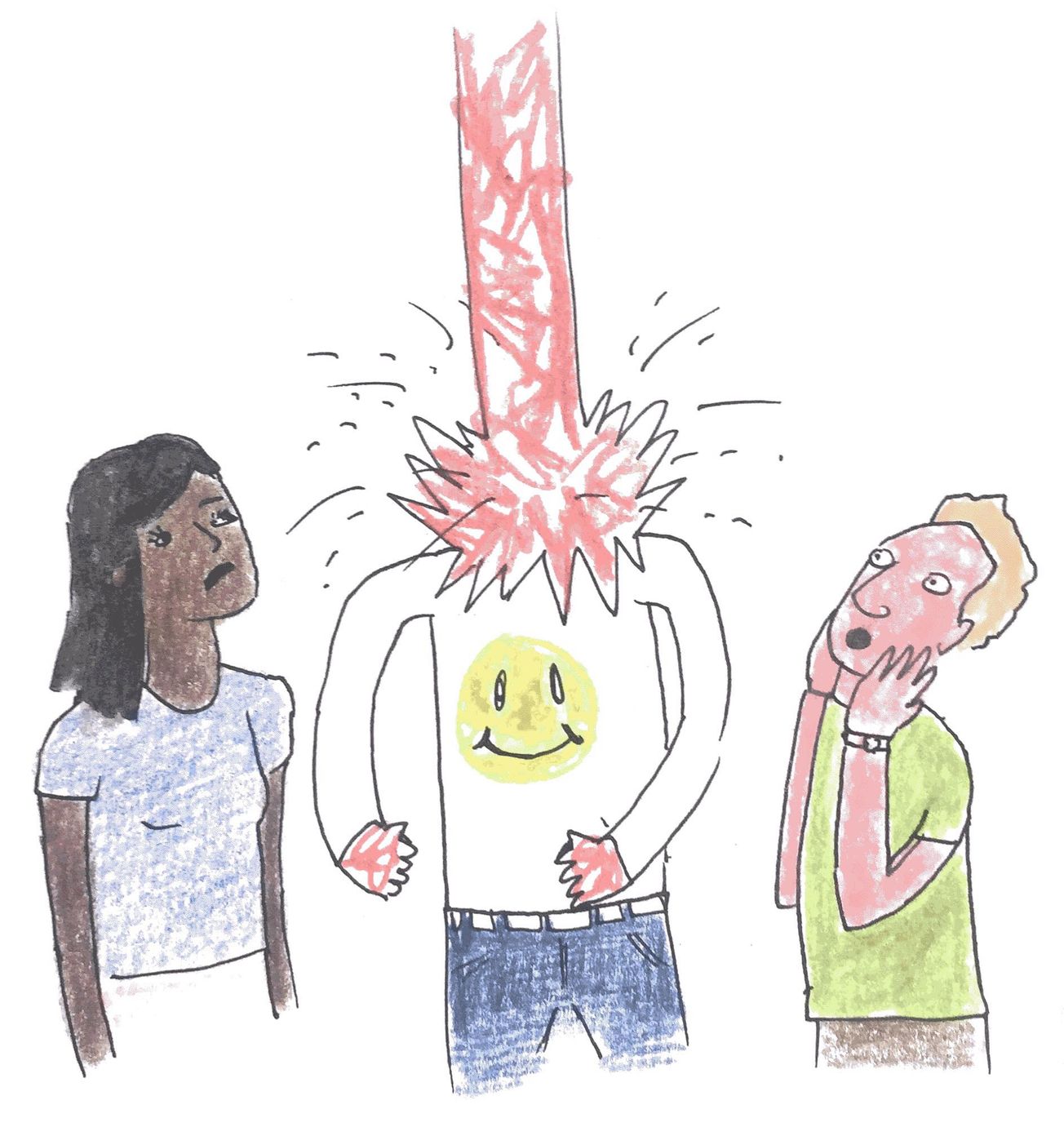7 November is National Stress Awareness Day. Therefore, we asked some of our Epigram Wellbeing writers what causes them stress and how they overcome it.
The mental load
By Emma Holding, Second Year, English and Philosophy
Stress at Uni comes in so many different forms that it creates a new kind of stress; the mental load. All your natural stresses which exist around your course, making friends, and keeping up with home chores result in an ever-compiling mental list of things to do and deadlines. Learning how-to-adult when you move away from home for the first time can be a lot of pressure and divert your attention from a healthy balance of work and play. The mental load, then, grows considerably when you start University, with the addition of new types of stress and can be one of the most difficult things to handle; the constant feeling that here is something you haven’t done, or should be doing.
Create a physical list, calendar or weekly plan, which will give you an easier-to-digest version of the load in your mind.
One of the best ways to ease your mental load is to create a physical list, calendar or weekly plan, which will give you an easier-to-digest version of the load in your mind. Weekly plans are great as you can see what you have to do in the forthcoming week and divide your time between it, this way you generally find you have enough time for everything, if you manage it well. Most importantly, remember that if the mental load is too much, consider which area is making you feel so stressed and combat it directly, nothing comes before your mental health.
Managing responsibility
By Luke Unger, Wellbeing Deputy Editor
I suppose I face a lot of stress with the responsibilities I’ve taken on this year. Not only that, but I suppose I place a great deal of pressure on myself to get the little things in life right- Cooking nutritious meals, exercising daily, maintaining relationships with friends- that sort of thing. Lists have always helped me whenever I get stressed. Being able to see where I am on a task and what I have to do makes life a lot clearer for me.
Finding time to go outside on a walk is key to managing my stress levels. I think we are quite lucky, being students of Bristol University, with the amounts of accessible green spaces our city has to offer. Take Brandon Park, Leigh Woods or the Downs for example. I can guarantee that after a brisk half an hour stroll , you will definitely be a lot less stressed!
Photo by Epigram / Jasmine Burke
The intense workload
By Marina Afzal-Khan, Online Wellbeing Editor
I do not deal well with stress. It usually has an impact on my physical and mental wellbeing. Starting third year was particularly stressful for me because - having done second year twice - I technically ‘should’ have graduated. I had my second year work load spread out over two years and I knew this year, things would be intense. It may be hard to manage. As the second week of term began, I suffered a breakdown because I was really struggling with keeping up with attending lectures, doing all my seminar readings, socialising, being on the committee for Model UN and Epigram. I felt like I was drowning. I couldn’t manage the workload and did not know what to prioritise, essentially because I didn’t organise a routine and gave myself too much to do. It made me want to not do anything at all. Sleep and eating became a myth.
Instead of bottling up all the stress I was feeling, I opened up to my flat mates, friends, teams in each society and family.
One thing that got me through this rough patch and feeling behind was speaking to my friends and family. Instead of bottling up all the stress I was feeling, I opened up to my flat mates, friends, teams in each society and family so that they could reassure me that if I can’t cope, I need to put my own well-being first above the stress, because it wasn’t worth it. Communicating also helped me build a routine and made the people around me aware of how I was feeling which meant I didn’t feel so alone and to know I had a support-network in place. Now I feel like third year can be manageable, with the right balance and by talking about it.
Sorting out a future
By Jasmine Burke, Wellbeing Editor

Photo by Epigram / Jasmine Burke
With two years already done, I assumed that in my final year at University I would be better at handling things and therefore less stressed. However, what I soon realised is that final year comes with a whole new thing to stress about… The future. I already had deadlines and exams and the pressure that this year counts for more than anything else. However, on top of that I now find myself hit with various emails about careers fairs and grad jobs and what my next step is. We are forever reminded that we are entering a hyper-competitive job market: you need ten years of experience in every field imaginable before you can even try applying for a base level position. There are assessments, interviews, questions of what city to stay in, considerations of masters… It feels like we are expected to decide how our whole life will plan out from this moment onwards, all while simultaneously getting the grades to make it happen. If I am being entirely honest, I have absolutely no idea what my next step is. And that is okay.
I have had to teach myself to take a step back and stop worrying. Of course, it is good to be pragmatic about the year ahead and where my degree could take me, but I also have to remember that I am only 21. I do not have to have my whole future laid out in front of me at this moment in time. For now, I settle the stress by having some perspective. I focus on where I am now with deadlines, extra-curricular activities and generally just enjoying my final year of University. I am still trying to figure out what my next step is, but I am trying to be a lot more relaxed about it.
Time pressure
By Arthur Smith, Third year, Aerospace Engineering
A major source of stress for me at Uni is time pressure. As an athlete I often feel as though I do not have time to work and do sport. However, I find exercising a great way to relieve stress and provide a structure to my daily routine. It also helps to be in the company of others in my situation who I can talk to if I need advice or support. Doing sport is also a great way for me to deal with exam stress – it really helps me to train during study breaks to take my mind off the stress of work.
Featured Image: Epigram / Luke Unger
How do you cope with the stress of University? Let us know in the comments or get in touch!










